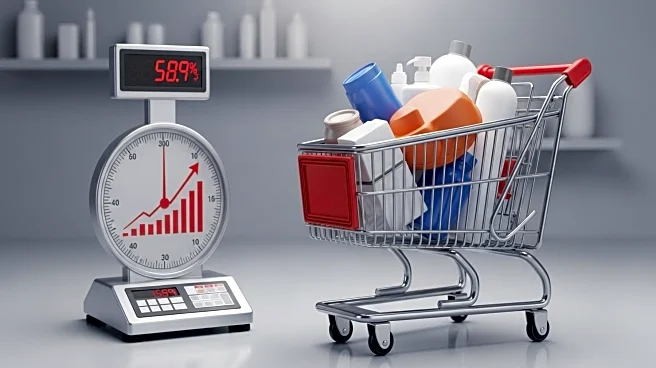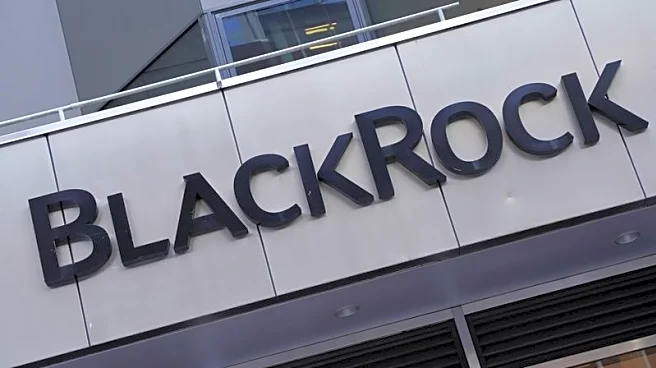What's Happening?
Retailers, including Walmart and Target, are warning of significant price increases due to President Trump's tariff policies. The tariffs, particularly on Brazilian coffee, are causing price hikes, with Folgers raising prices twice in four months. The retail sector anticipates further inflationary pressures as tariffs impact supply chains and consumer prices.
Why It's Important?
The tariff-induced price hikes affect consumers, retailers, and the broader economy. Higher prices can reduce consumer spending, impacting economic growth and retail profitability. The situation highlights the complexities of trade policies and their direct impact on domestic markets. Retailers may face challenges in maintaining competitive pricing and customer loyalty amid rising costs.
What's Next?
As tariffs continue to influence prices, retailers may need to adjust strategies to mitigate impacts on consumers. Potential responses include exploring alternative supply sources, negotiating with suppliers, and implementing cost-saving measures. The political narrative surrounding tariffs may also evolve, influencing public perception and policy discussions.
Beyond the Headlines
The tariff situation underscores the interplay between international trade policies and domestic economic outcomes. The reliance on tariffs as a policy tool raises questions about long-term trade strategies and their effectiveness in achieving economic goals. The impact on consumer prices may prompt broader discussions on trade policy reform.










